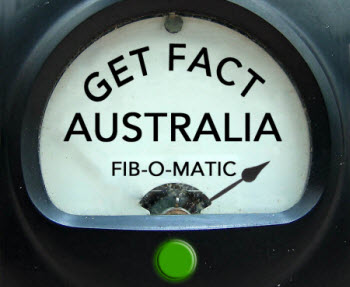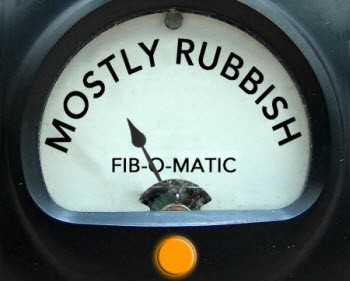
Yesterday, chief climate commissioner Tim Flannery said Australians were being duped by “lies” propagated by opponents of government action on climate change.
“We’ve been misled here in Australia,” Flannery told AAP. He was referring in part to claims that “the world isn’t acting”, and perhaps had in mind the Coalition’s consistent line over the last year that Australia was “going it alone” on a carbon tax and an emissions trading scheme.
Flannery’s Climate Change Commission’s report, The Critical Decade: International Action on Climate Change, was released yesterday and estimates that by next year, 33 countries and 18 sub-national jurisdictions will have a carbon price in place.
“These schemes could be expected to cover around 850 million people, around 30% of the global economy and around 20% of global emissions,” the report states. Twelve per cent of the world’s population will live in regions with a carbon price, including around 250 million urban Chinese.
So how does this compare to the stance by Opposition Leader Tony Abbott on climate change policy? Here’s what he’s on the record as saying on June 21 this year:
“The Prime Minister should be waking up to herself and waking up to the fact that the rest of the world is not taking decisive action by way of carbon taxes or emissions trading schemes. Sure, lots of other countries are doing the sorts of things to help the environment that the Coalition is recommending — they’re taking direct action — but they are not putting in place economy wide carbon taxes or emissions trading schemes …” [emphasis added].
Crikey has decided to put this comment to the test as part of our GetFact series, where we subject prominent claims to a truth test.
Just to confirm Abbott’s stance, on July 8, he was at it again, telling Barrie Cassidy on Insiders that “the world is running away from an emissions trading scheme at a million miles an hour. It’s been obvious since Copenhagen that we’re not moving toward these things, we’re moving away from them.”
Cassidy pressed him on that. Was Abbott sure international ETS’s were off the agenda? “As I said, all the signs, whether it’s America, Canada, whether it’s the rest of the big economies, there are no signs that any of them are embracing a carbon tax or an economy-wide emissions trading scheme.”
The Coalition’s speaking notes, leaked to Crikey last month, state that “it was clear from the recent Durban Climate Change Conference that the rest of the world, including the United States, Canada, India, China and Japan, is not adopting a broad based Carbon Tax model.”
So what are the facts?
The Climate Change Commission’s report found that all developed countries have pledged some kind of action on climate change, and cited last year’s Productivity Commission study of emissions reduction policies in nine countries that identified more than “1000 general ‘policies’ in the United States, around 235 in Australia, 130 in Germany, 100 in the United Kingdom, 80 in China, 70 each in the Republic of Korea and India, 65 in Japan, and 30 in New Zealand.”
Japan has emissions trading in Tokyo and Saitama (comprising 20 million people), and South Africa will introduce a carbon tax in 2013. In Canada, Quebec and British Columbia have carbon taxes on certain products, Alberta introduced emissions trading in 2006 and Quebec will follow in 2013. Finland, Norway Sweden, Switzerland, Ireland, China and India have tax arrangements on carbon or resources. The 27 countries in the European Union are subject to an emissions trading schemes, as are Norway, Iceland, Switzerland and New Zealand. The US State of California has an emissions trading scheme due to start next year.
But as Bernard Keane noted yesterday, while carbon pricing existed or was planned at a national or sub-national level in China, the US, the EU, Russia, India and Japan, all had some kind of renewable energy target, all had energy efficiency regulation and most had vehicle emission standards — the precise kind of “direct action” championed by Abbott.
On the other hand, some of the significance of ‘action’ was overstated in the Climate Commission report — for example, New Zealand has dragged its heels expanding its trading scheme and the EU’s scheme is struggling with record low prices.
And the solidity of UNFCCC international pacts remain dubious. According to last year’s Garnaut review, “89 developed and developing countries, representing more than 80 per cent of global emissions and about 90 per cent of the global economy, have pledged large cuts and actions” under that year’s Cancun Agreements. At the Durban UNFCCC summit, 195 countries, including the US, China, Japan and India, agreed to negotiate a new international deal by 2015 with “legal force” to reduce emissions, taking effect from 2020. But the Durban Platform could also be interpreted as an agreement to continue talking. India famously held out for the language to be watered down — to “legal force” from “legally bound”.
There are some facts that are not disputed. The Climate Commission notes that Australia is the world’s 15th largest emitter, and the biggest polluter per person. The Coalition has proposed a $3.2 billion plan to meet Abbott’s commitment to reduce carbon emissions by 5% by 2020, without carbon pricing.
We therefore rate Abbott’s statement that the ALP is “going it alone” on pricing carbon as “mostly rubbish”.

*Any omissions or stuff-ups? What other claims and spin from across the news agenda should Crikey examine as part of Get Fact? Drop us a line with your suggestions …








I can’t fault your reasoning, but I’m nevertheless deeply disturbed that the Fib-o-matic in the picture at the bottom seems to have a scale that goes from MOSTLY RUBBISH to MOSTLY RUBBISH.
Or from M to H I guess?
The easiest way to count nations doing something about cc is to check if they have a conservative govt. If they do, no amount of weasel words will hide the fact they will do nothing – including the so-called laughable ‘direct action’.
I think Abbott is changing his criticism to alleging that Australia’s carbon price is the highest in the world, which seems to have more substance if one ignores the government’s subsidies.
Aotearoa New Zealand has a conservative government yet it has an emissions trading scheme.
What the “flat earth society” also leaves out is that Australians are one of the biggest carbon emitters (polluters) on a per head of population basis.
Flannery has been exposed for what he is, with his colourful cards on the card table outside a inner city coffee shop. He was exposed with his revelation on Sydney Dam, which he said would be empty by 2009, costing NSW Billions in a de-sal plant.
The Dam has overflowed twice this year and the de-sal plant is rusting, switched OFF.
Maeanshile Flannery collects his cash for comment income from the Government and live in a waterfront house at Copa Point on the Hawkesbury.